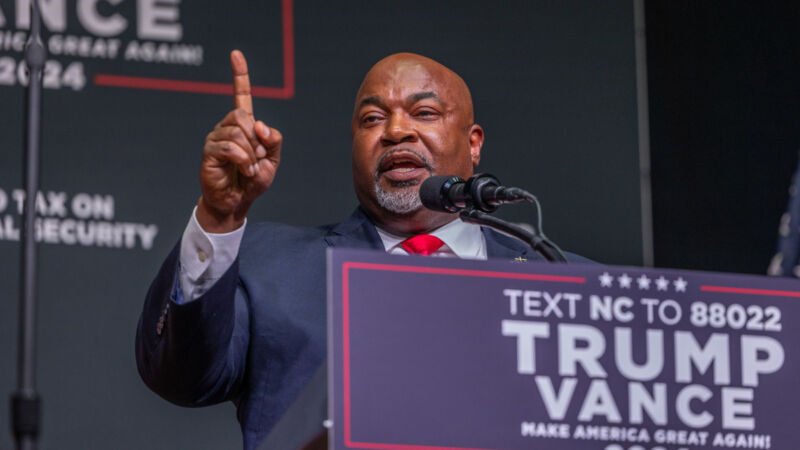Home » Business » US officials to meet with ‘crypto’ crooks to discuss European regulations
United States officials will travel to Europe to discuss transatlantic regulation of digital assets, but their plan to speak with some of the space’s biggest crooks casts doubt on their judgment.
On Wednesday,Politico(paywall) reported that a dozen-strong delegation of U.S. officials will land in Europe next week on a weeklong fact-finding mission focused on the European Union’sMarkets in Crypto Assets(MiCA) regulations. The delegation, which includes advisers to several prominent federal politicians, will meet their EU counterparts, banking and securities regulators, as well as some ‘industry representatives.’
The federal lawmakers sending advisers include Sen. Sherrod Brown (D-OH), chairman of the powerful Senate Committee on Banking, Housing and Urban Affairs, which held a‘crypto crash’ hearingearlier this week. Brown’s opening statement in that hearing left little doubt about his sentiments, with quotes like “this crypto nightmare isn’t over yet” and “cryptocurrencies,stablecoinsinvestment tokens are speculative products run by reckless companies that put Americans’ hard-earned money at risk.”
Crypto bros will still have a few allies in this delegation, including a staffer from the office of Sen.John Boozman(R-AR), a ranking member of the Senate Committee on Agriculture, Nutrition, and Forestry. Last year, Boozman co-authored theDigital Commodities Consumer Protection Actwhich would have granted the digital asset-friendlyCommodity Futures Trading Commission(CFTC) the primary role in regulating digital assets.
Also, Europe-bound is a staffer from the office of Rep.Patrick McHenry(R-NC), chairman of theHouse Financial Services Committee. Like others in his party, McHenry—a blockchain proponent—has criticizedSecurities and Exchange Commission(SEC) chairmanGary Genslerfor his alleged ‘regulation by enforcement’ approach to reining in digital currency excesses.
Last week, McHenry co-authoreda letter to Genslernoting thatSam Bankman-Fried(SBF), founder of the collapsedFTXexchange and its affiliated market-makerAlameda Researchhad been scheduled togive testimony to McHenry’s committeelast December 13 but was insteadarrested in the Bahamasthe night before oncriminal chargesfiled by the U.S. Department of Justice, as well as civil charges by the SEC and CFTC.
McHenry’s letter claimed that “the timing of the charges and [SBF’s] arrest raise serious questions about the SEC’s process and cooperation with the Department of Justice.” McHenry sought “all records and communications” that SEC officials might have had regarding SBF, either internally or with the DoJ. McHenry wants answers by February 23.
The grand tour
Getting back to Europe, the U.S. delegation will reportedly start in Brussels to meet with members of the European Commission (EC), the European Parliament, and the Council of the EU. Officials from the European Central Bank may also make an appearance.
The second leg of the U.S. delegation’s European vacation sees them stop in Paris to meet officials from the European Banking Authority and the European Securities and Markets Authority.
A final vote on MiCA has beenpushed back until Apriltypifying the often glacial pace at which legislation actually becomes law of the land(s). Even assuming no new procedural roadblocks emerge, the 18-month transition period means the new crypto regime won’t fully take effect until mid- to late-2024 (although the stablecoin rules could come into force early next year).
Regardless, U.S. lawmakers now have a blueprint from which to craft their own digital asset rules, although the push is on to harmonize these with their European counterparts. Mairead McGuinness, the EC’s finance commissioner, wrotean op-ed in The Hilllast year calling for a “global approach to cryptocurrencies” and suggesting that “the EU and the U.S. can lead the way on regulating crypto.”
Okay, but that would require U.S. politicians to agree to an international approach to problem-solving, a stance that many pols—we’re looking at you, GOP—tend to view as a treasonous surrender of U.S. sovereignty. There’s also the idea that the U.S. is effectively being asked to follow Europe’s lead here, and if the colorful culinary history of‘freedom fries’and‘liberty cabbage’is anything to go on, don’t expect a transatlantic handshake anytime soon.
Paris(ites)
More troubling is the U.S. delegation’s plans to meet with a handful of digital asset firms to get their views on the potential impacts of MiCA. Politico reported that the companies sending reps to this Wednesday (22) meeting includeAva Labs,Binance,Bitstamp,Chainalysis,Coinbase(NASDAQ: COIN),Circle, Kraken,Ripple(NASDAQ: XRP),Stellar Development FoundationTRM andUniswap Labs.
With the exception of Chainalysis, whose annualCrypto Crime Reportsdo yeoman’s service in documenting digital asset malfeasance, it’s hard to imagine a less qualified cohort to offer advice on how to craft digital asset regulations. Honestly, it’s like the Drug Enforcement Agency summoning the bosses of New York’s five Mafia families to consider their views on the impact of cracking down on narcotics trafficking.
One can easily imagine the heads of Binance, Coinbase, and Kraken getting together next Tuesday to plot how to bamboozle the unsuspecting political aides with their patented mixture of technical hand-wavey nonsense alongside slogans such as ‘banking the unbanked,’ ‘democratizing finance’ and ‘number go up.’ Only afterward will they uttertheir actual motto.
Just this month, Kraken wasfined $30 millionfor offering unregistered securities to U.S. customers. Kraken’s outgoing CEO Jesse Powell appears to have rolled over without a fight—much like he did when Kraken was caughtallowing Iranian customers to evade economic sanctions—but resumed hisInternet Tough Guy schtickimmediately afterward.
Coinbase CEOBrian Armstrongand chief legal officer Brian Grewal alsotaunted the SEClast week based on their apparent belief that they’re above the law. This is from a company that paid over $103 million in penalties in just the first month of 2023 forregulatory failings in the U.S.andEurope.
And then there’s Binance, the poster boys forcrypto criminalitywhose bossChangpeng ‘CZ’ Zhaorarely stays put in any one jurisdiction longer than he absolutely has to, evidently all too aware that a warrant orInterpol‘red notice’ might be lurking. On Thursday, CZ was exposed (again) as a liarthis time involving unauthorized access to the U.S. banking system, which should go over really well with the chairmen of the House and Senate financial committees.
If these shysters really are the best that ‘crypto’ has to offer, then the sooner the sector is euthanized, the better. These guys are the problem, not the solution. If U.S. officials really want an insight into what Bitcoin was designed for—low-cost peer-to-peer transactions and immutable data storage, all within the confines of the law—there are classes for that. And unlike their planned Paris meeting, you can enjoy these classes from the privacy of your hotel room, and you won’t have to keep one hand on your wallet the whole time.
Watch: BSV On-chain Ecosystem Development in Europe
New to Bitcoin? Check out CoinGeek’sBitcoin for Beginnerssection, the ultimate resource guide to learn more about Bitcoin—as originally envisioned by Satoshi Nakamoto—and blockchain.










